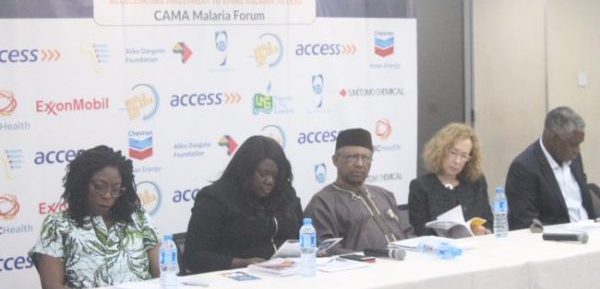Metro
WORLD MALARIA DAY: Public, Private sector align to strengthen Africa’s health system

The 2018 World malaria day in Nigeria has brought both public and private sector key players together, to brainstorm on the best strategies to explore in ending the sickness.
Malaria reportedly claims over 300,000 lives annually, particularly, children under the age of 5.
The Minister of state for health, Dr Osagie Ehanire reiterated that the Federal Government has realized the need to partner with the private sector in ending the scourge, by providing the enabling platform for the Corporate Alliance of Malaria in Africa (CAMA) to ride on and reach the grassroots, which has remained the under-served communities that need to be reached due to the high burden of malaria cases recorded.
Ehanire, who was in attendance at the 2018 CAMA Private Sector Malaria Forum in Lagos, which had stakeholders gather to brainstorm on how to accelerate investment to bring malaria to zero, stressed that the Federal Government is working assiduously in setting up primary health care centres across the country which will facilitate easy access to the grassroots.
“The federal government is working on the primary health care system to build on the national health system and part of it is the national health act and the basic health care provision funds, which is to facilitate setting up healthcare down to the grassroots and exploring all methods of research and research centres to find new ways of doing things”.
He also added that the government has agreed to fulfil its promise by partnering with the private sector due to their expertise and efficiency.
Read also: NASS INVASION: Mass sack, redeployment of security agents underway
“We promise the private sector that we will make use of their expertise, efficiency and management skills and give them a full partnership in the management of all programs in which private sector is working with the government.”
“As regards resource mobilization for the private sector, in 2016 a private sector engagement strategy document was signed and it had key stakeholders, the document has not been finalized and we are willing to bring out the document and expand the scope, with regards to malaria eradication, he added.”
The minister also stated that the government has the platform, which can make the advocacy effective across the country.
For key stakeholders like the GBCHealth, its president, Nancy Wildfeir-Field complained about the alarming statistics of mortality rate caused by malaria and reiterated the need for the private sector to embrace the fight.
“The statistics on malaria is alarming and it has a way of affecting the business, so companies should invest in malaria, which will help reduce the absenteeism within their workforce which then translate to productivity which will also lead to economic growth and within the process, education and awareness is important and employers can start with their workforce”.
“We have to work with communities and their leaders to overcome the cultural beliefs and welcome the idea of fighting malaria. Businesses can also use health insurance to help tackle malaria; their workforce can go to the hospital and get a treatment against malaria, she added”.
In a similar vein, Omobolanle Victor-Laniyan who is the Head Sustainability for Access Bank intimated on the strategy deployed in reaching the grassroots who are radically exposed to malaria.
“There is a need for us to step up against malaria, there is also a need for private sector to take charge and Africans should take charge of issues facing the continent. The need for the public, private sector partnership is because we cannot do it alone and the corporate alliance has recorded a good success due to some few initiatives we have towards the elimination of malaria. This coalition is the only outfit that tends to tackle malaria as an independent issue”.
RipplesNigeria… without borders, without fears
Click here to join the Ripples Nigeria WhatsApp group for latest updates.
Join the conversation
Support Ripples Nigeria, hold up solutions journalism
Balanced, fearless journalism driven by data comes at huge financial costs.
As a media platform, we hold leadership accountable and will not trade the right to press freedom and free speech for a piece of cake.
If you like what we do, and are ready to uphold solutions journalism, kindly donate to the Ripples Nigeria cause.
Your support would help to ensure that citizens and institutions continue to have free access to credible and reliable information for societal development.






















